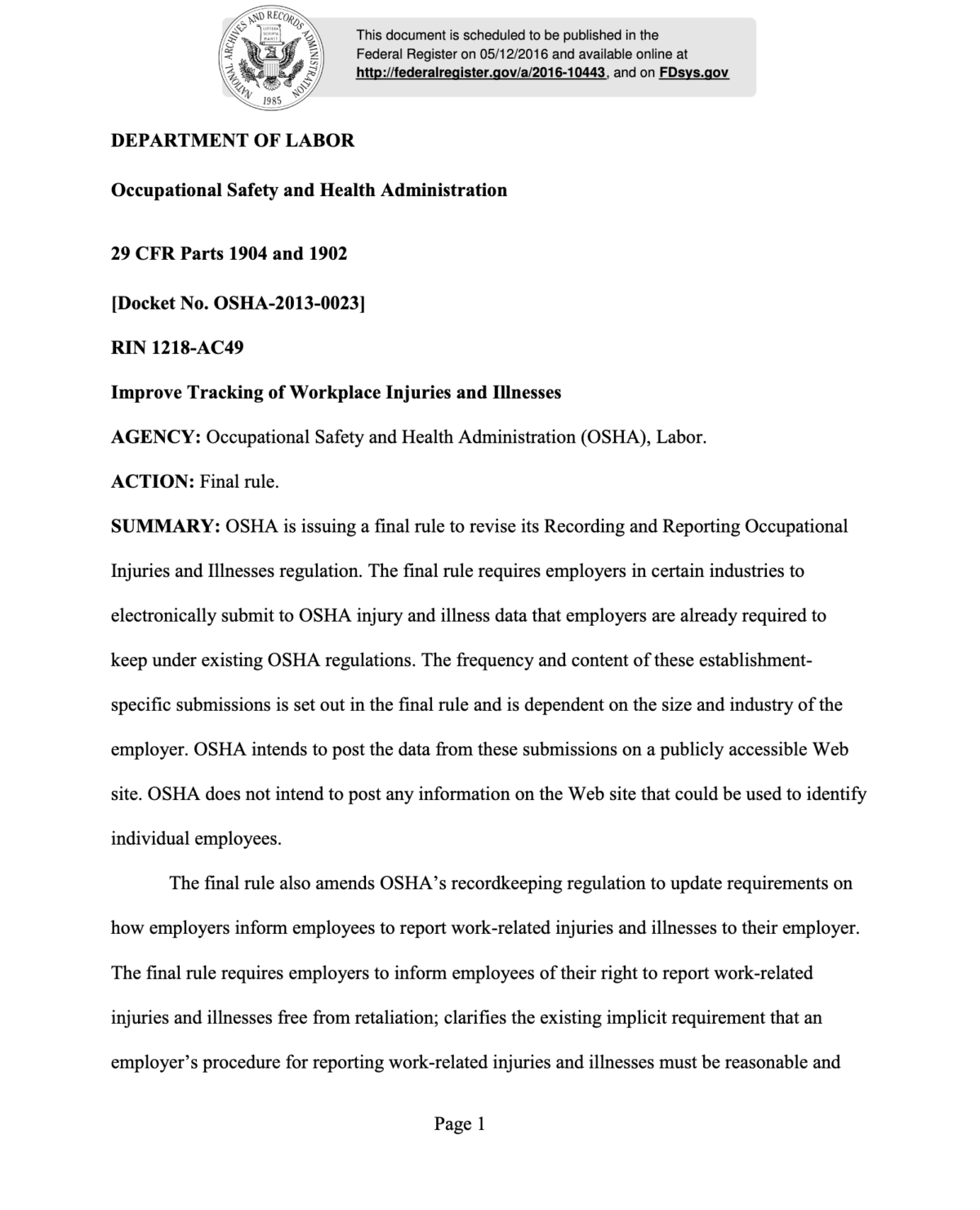New OSHA rule to help protect workers from retaliation

The Occupational Safety and Health Administration (OSHA) issued a new rule allowing the agency to hold employers accountable for retaliating against workers for reporting injuries even when a complaint is anonymous.
Previously OSHA could only respond when a worker made a complaint of retaliation within a 30-day window. Now OSHA will be allowed to issue citations and require abatement with the goal of “eliminat[ing] the source of retaliation” and respond to complaints at any time while maintaining the anonymity of potentially fearful workers. The rule also requires employers in specific industries to electronically submit injury and illness data they are already mandated to collect. This should yield better data to aid enforcement.
Each year, workplace hazards kill more people than car accidents and homicides and injure millions more. An estimated 8.5 million people in the United States are now living with work-related disabilities, but official statistics dramatically understate the scope of the problem because many employers scare workers out of reporting safety violations and injuries.
One of the primary obstacles to keeping workers safe is retaliation by employers: employers who want to escape enforcement of health and safety laws intimidate workers into silence by threatening workers with demotions, reduced hours, termination and other forms of retaliation. Half of the low-wage workers who experienced a severe injury in a seminal 2009 national study reported illegal reactions from their employers.
The new rule could give added security to workers like Becky McClain, who experienced escalating forms of retaliation when she told her management at Pfizer, her employer, that she had been exposed to a toxic substance, and was experiencing health problems because of it.
“I tried to raise these issues with management and was repeatedly ignored and told I was hypersensitive,” says McClain. As she continued to speak up, McClain says, “Pfizer became more aggressive and began to retaliate against me as I kept speaking out about public and worker health and safety issues. My supervisor actually forced me up against a wall and threatened me that he would falsify my performance review. … When I wrote to Pfizer asking for my exposure records, which I needed to get appropriate care for my condition, they fired me.”
While more worker-centered solutions are needed to empower workers like McClain to participate fully in workplace enforcement, this new ruling is a step in the right direction.
